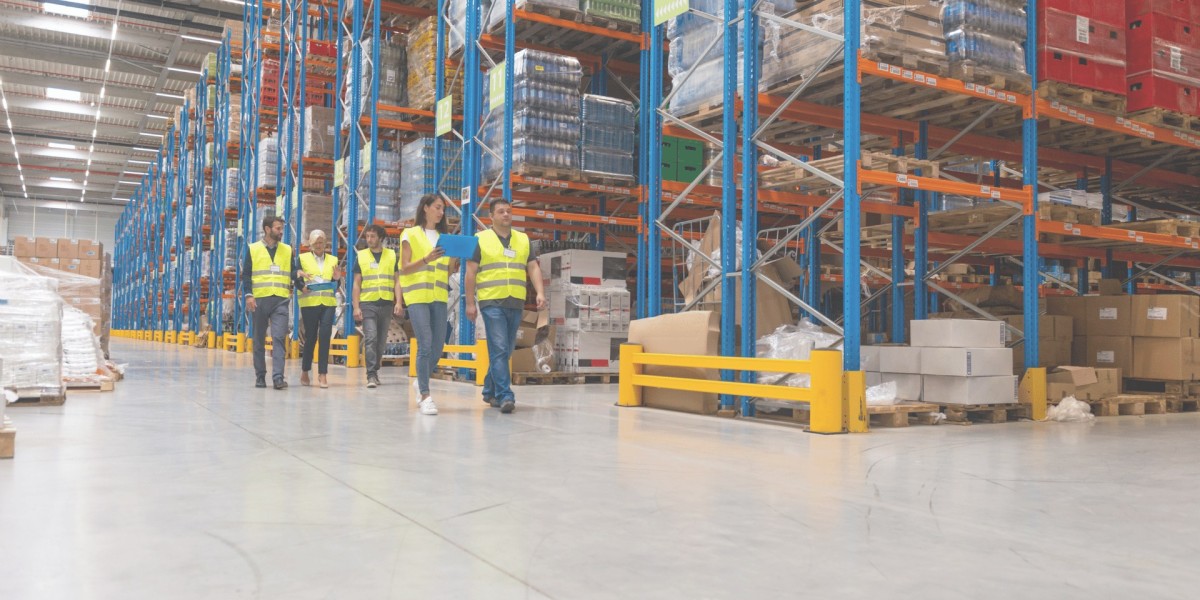In today’s fast-evolving industrial and commercial landscape, businesses require infrastructure that can adapt, scale, and perform efficiently. As trade, logistics, and e-commerce continue to expand across the UAE, the demand for specialized facilities has never been greater. Warehouse construction has become a cornerstone of this development, offering businesses tailored spaces designed for seamless operations, maximum storage capacity, and enhanced workflow efficiency.
The city of Dubai, known for its forward-thinking approach to architecture and infrastructure, has set new standards in industrial design and innovation. The success of warehouse projects depends not only on design and materials but also on strategic planning, sustainability, and technological integration—elements that define the future of modern business infrastructure.
Understanding the Role of Warehouse Construction in Modern Business
Warehouses are no longer just storage facilities; they are strategic assets that directly impact productivity, logistics, and profitability. A well-planned warehouse can streamline supply chains, reduce operational costs, and optimize inventory management. Modern warehouse construction focuses on designing facilities that are flexible, scalable, and capable of supporting advanced technologies such as automation and smart inventory systems.
From distribution centers to temperature-controlled storage spaces, warehouses today cater to a variety of industries—including retail, e-commerce, pharmaceuticals, and manufacturing. The design process takes into account key factors like load-bearing capacities, layout optimization, accessibility, and safety compliance, ensuring that each structure supports efficient operations and future growth.
Designing for Functionality and Efficiency
The design phase plays a critical role in ensuring that warehouses meet business needs effectively. The goal is to create a balance between space utilization and operational flow. High ceilings, wide aisles, and strategically positioned loading docks are essential for enabling smooth movement of goods and vehicles.
Advanced warehouse contractors in Dubai understand that every square meter of space must serve a purpose. They design with efficiency in mind—incorporating mezzanine floors for additional storage, energy-efficient lighting to reduce operational costs, and ventilation systems that maintain optimal indoor conditions. The integration of modern automation systems, such as conveyor belts and robotic sorting technologies, further enhances operational efficiency and minimizes human error.
Emphasizing Durability and Safety Standards
Durability is a defining aspect of any successful warehouse project. Warehouses are built to withstand heavy loads, constant movement of machinery, and challenging environmental conditions. Using high-quality materials and advanced construction techniques ensures that the structure remains robust and long-lasting.
Safety, too, is paramount. Professional warehouse contractors in Dubai prioritize compliance with safety regulations, including fire suppression systems, emergency exits, anti-slip flooring, and structural stability measures. These elements not only protect valuable goods but also ensure the safety of employees working within the facility.
Incorporating Sustainability and Innovation
As Dubai continues to embrace sustainability as a core principle of its urban development vision, warehouse projects are evolving to meet green building standards. Sustainable warehouse construction incorporates eco-friendly materials, solar power systems, and water-efficient technologies to minimize environmental impact.
Energy-efficient lighting, proper insulation, and advanced HVAC systems help reduce carbon footprints and operational costs. Some warehouses also integrate rainwater harvesting and smart energy monitoring systems, aligning with Dubai’s sustainability goals while promoting long-term financial savings for business owners.
Moreover, innovation in design and technology has made warehouses smarter than ever. The use of Building Information Modeling (BIM) allows precise planning, while IoT-based systems enable real-time monitoring of temperature, inventory levels, and security. These technologies are revolutionizing how warehouses function and are maintained, creating spaces that can adapt to the demands of modern commerce.
Customization: Building for Business Needs
No two businesses operate in the same way, which is why customization is key in warehouse construction. Each project is tailored according to specific industry requirements. For instance, a cold storage warehouse requires insulated walls and temperature-control systems, while an e-commerce fulfillment center needs efficient sorting, packing, and dispatching zones.
Professional construction firms collaborate closely with clients to design spaces that reflect their operational flow, storage needs, and future expansion goals. This personalized approach ensures that every warehouse project maximizes efficiency, supports workflow optimization, and enhances productivity.
Strategic Location and Accessibility
Dubai’s strategic position as a global logistics hub makes location a crucial factor in warehouse development. Proximity to major highways, ports, and airports ensures quick distribution and accessibility.
When planning warehouse construction, site selection and infrastructure connectivity are key considerations. Easy access to transportation networks allows businesses to move goods seamlessly within the UAE and beyond, reinforcing Dubai’s reputation as one of the world’s leading centers for trade and logistics.
Partnering with the Right Experts
The success of any warehouse project depends heavily on partnering with experienced professionals who understand the technical and functional requirements of industrial facilities. Choosing a reliable construction partner ensures that every detail—from structural design to mechanical systems—is executed with precision.
Top warehouse contractors in Dubai bring expertise, advanced technology, and a results-driven approach to each project. They focus on efficiency, quality control, and adherence to deadlines, ensuring that businesses receive facilities that meet international standards while accommodating local regulatory requirements.
Conclusion: Building for the Future with Expert Contractors
As businesses continue to evolve, warehouses must do more than provide space—they must enable growth, efficiency, and innovation. By collaborating with professional construction contractors in Dubai, companies can ensure that their warehouses are built to the highest standards of durability, sustainability, and functionality.
Expertly designed and constructed warehouses empower businesses to operate more efficiently, adapt to market demands, and scale effortlessly. Through a combination of smart design, quality materials, and forward-thinking engineering, Dubai continues to lead the way in redefining warehouse construction for the future—creating spaces that drive success, productivity, and sustainable progress.






